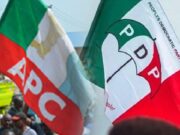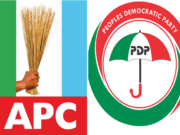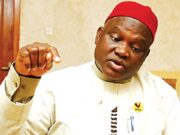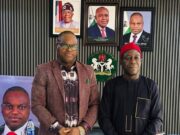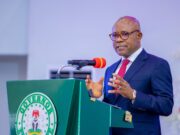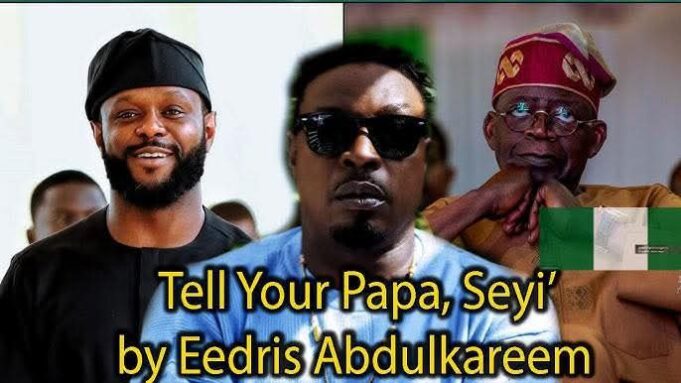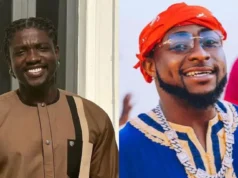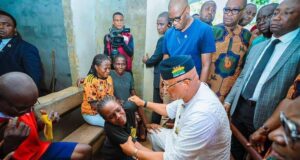Veteran Nigerian rapper and activist, Eedris Abdulkareem, has alleged that he was offered a N200 million bribe by an unidentified man claiming to be a senator, following the ban on his latest protest song, Tell Your Papa, by the National Broadcasting Commission (NBC).
In a video circulating on social media, Abdulkareem revealed that the offer was disguised as covert support for his activism and protest music.
“So I got a call from one criminal who claimed to be a honourable; he didn’t even allow me to hear his name. After claiming to be a honourable, at the end of the call when I asked him what his name was, he claimed to be a senator,” he said.
According to the rapper, the caller claimed to have attended a meeting with government officials and Seyi Tinubu, son of President Bola Tinubu.
During the call, the alleged senator said Abdulkareem should expect further bribe offers and promised underground sponsorship.
“He told me that he was in a meeting yesterday with Seyi (a son to President Bola Tinubu), and some government officials.”
“He said, ‘They are going to call you and bribe you, don’t listen to them, we are going to be sponsoring you underground’. I then asked him, ‘who told you that I need anything’?”
Abdulkareem said he immediately turned down the offer and challenged the motives of those involved.
“Immediately I heard his voice, I knew he was sent by them. So, I told him I was not interested. He said, ‘We will give you N200m, don’t even listen to them’. So, I asked him, the video I shot, was it you who sponsored me underground?”
“You guys should go and rest somewhere, I am not interested. Thieves, may God punish all of you. It’s me that you guys want to record for caricature; you people are insane.”
“I have prepared for you people a long time ago,” Abdulkareem added, expressing suspicion of a ploy to manipulate or discredit him.
His controversial song Tell Your Papa, which criticizes political leadership and highlights Nigeria’s deepening economic woes, was banned by the NBC on April 10. The move has since drawn widespread criticism.
The Performing Musicians Association of Nigeria (PMAN) condemned the ban, warning that it may have the opposite effect of increasing the song’s popularity.
“It only serves to amplify the song’s reach and relevance in light of the current socio-economic challenges facing Nigerians,” the association said in a statement.
Similarly, Media Rights Agenda (MRA) blasted the NBC’s decision, calling it an abuse of its regulatory function.
“The NBC has completely confused its role as a supposedly independent media regulatory body with that of a propaganda agency charged with shielding the government from criticism or embarrassment,” said Ayomide Eweje, Programme Officer at MRA.


